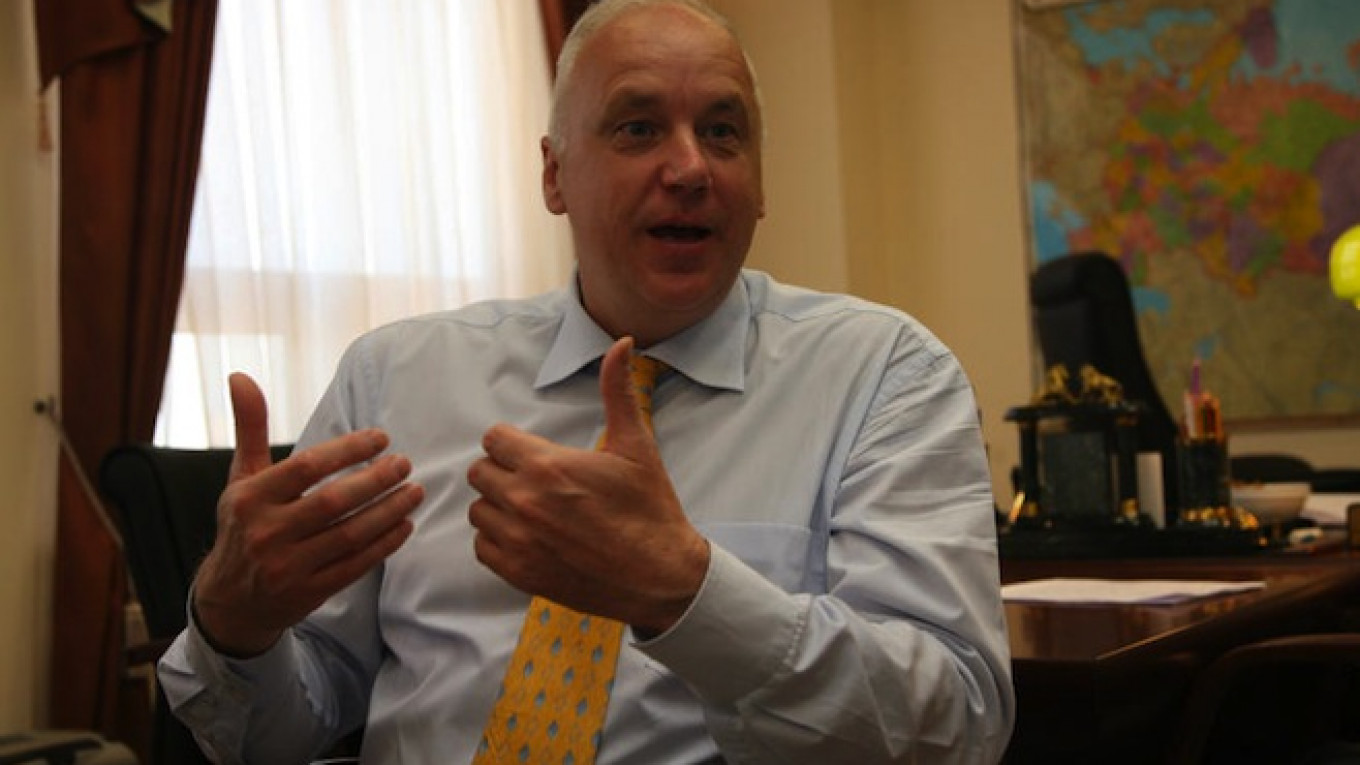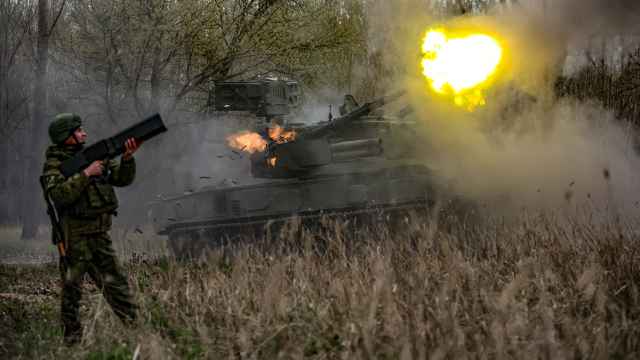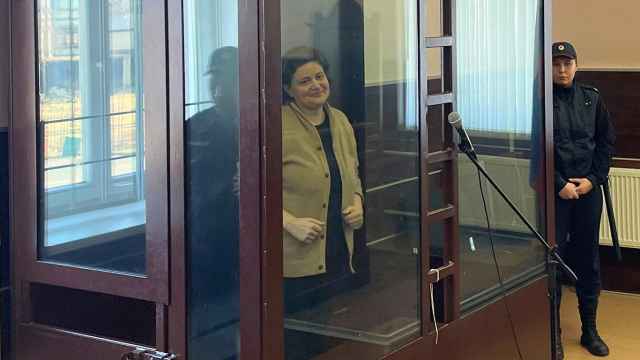The powerful head of the Investigative Committee proposed revoking international agreements that Russia deems contrary to its interests, media reports said Wednesday.
“Let's review the agreements of the past two decades, take a look at what we have taken upon ourselves to do there, how relevant this is today and how much this corresponds to Russia's interests, and maybe start the process of denouncing some agreements that don't meet those criteria,” Investigative Committee head Alexander Bastrykin told a conference in the city of Kazan in central Russia, the Interfax news agency reported.
The proposal follows the souring of Moscow's relations with the West over the crisis in Ukraine — a standoff that has produced sharp rhetoric by top Russian officials, claiming that Western governments were seeking to ruin their country, and calling for Russia to break free from what Moscow sees as bonds forced upon it to hold it down.
A cross-party coalition at the State Duma, or the lower house of parliament, introduced a bill earlier this month that would authorize the Russian Constitutional Court to overturn international court decisions “if they run counter to the provisions of the Russian constitution.”
The bill would expand on the Constitutional Court's own ruling on July 14, which said that Russia can refuse to comply with European Court of Human Rights judgments, in exceptional cases.
Bastrykin has been among the most vocal proponents in the country of revising — and possibly cutting — Russia's obligations under international law.
For months he has been calling for the elimination of Russian Constitution Article 15, which enshrines international law and agreements as a “component part” of Russia's legal system, and states that when contradictory, international treaties take precedence over Russia's domestic laws.
This adherence to international law, according to Bastrykin, is entirely outdated.
“Today, international legal institutes that were formed 40-50 years ago have to a substantial degree lost their relevance,” he told the panel in Kazan, the state-run RIA Novosti news agency reported Wednesday.
“Many of the fundamental principles of international law, which were enshrined in the [United Nations] fundamental documents, have simply stopped working,” Bastrykin said, RIA Novosti reported.
The tenets of international law that Bastrykin said had become “simply slogans” include those that Western governments have accused Russia of breaking with its annexation of Crimea and support for separatist insurgents in eastern Ukraine.
“The majority of those principles [of international law] have turned into declarations, unfortunately,” Bastrykin was quoted by RIA Novosti as saying. “This is the principle, for instance, of the non-use of force in international relations, the principle of renouncing threats of force in international relations, the principle of abiding by agreements and obligations that have been signed.”
Western governments and Kiev have charged that by meddling in Ukraine, Russia has broken a number of international laws and agreements. Those include the 1994 Budapest Memorandum, which reaffirmed Ukraine's territorial integrity in exchange for the country agreeing to give up nuclear weapons, and the 1997 Friendship Treaty between Russia and Ukraine.
Moscow has also been blamed for dispatching troops to overrun Crimea prior to the annexation of the peninsula last year, and has been accused of supplying fighters and weapons to insurgents in eastern Ukraine.
Russia denies accusations of using force in its relations with Ukraine, maintaining that the annexation of Crimea was necessary to protect its Russian speakers, while the Russian citizens fighting in the east are all volunteers.
Contact the author at newsreporter@imedia.ru
A Message from The Moscow Times:
Dear readers,
We are facing unprecedented challenges. Russia's Prosecutor General's Office has designated The Moscow Times as an "undesirable" organization, criminalizing our work and putting our staff at risk of prosecution. This follows our earlier unjust labeling as a "foreign agent."
These actions are direct attempts to silence independent journalism in Russia. The authorities claim our work "discredits the decisions of the Russian leadership." We see things differently: we strive to provide accurate, unbiased reporting on Russia.
We, the journalists of The Moscow Times, refuse to be silenced. But to continue our work, we need your help.
Your support, no matter how small, makes a world of difference. If you can, please support us monthly starting from just $2. It's quick to set up, and every contribution makes a significant impact.
By supporting The Moscow Times, you're defending open, independent journalism in the face of repression. Thank you for standing with us.
Remind me later.






